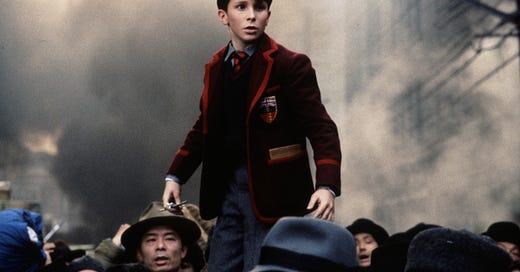I still tighten up reflexively when asked, “Where are you from?” It’s outdated how we press strangers to state their identity in a sentence or less. I do a split-second appraisal of where I think you’re from and how long we’ll know each other. My reply might sound dishonest but always incomplete.
Third culture kid (TCK) is a term coined in the ‘50s that went mainstream thanks to Mean Girls and Obama. We’re kids raised in cultures outside of those of our parents, who were typically multinational execs, diplomats, missionaries, or spies. Most of us were latchkey kids too.
My father was from the Philippines and had Chinese heritage. My mother’s father was a Boston WASP and her mother from a mixed European line that settled in the Caribbean. Dictators, divorces, and a cult entanglement kept everyone moving.
I was born in the Philippines and lived in Singapore, India, the former Czechoslovakia, Denmark, Sweden, Germany, the US, and Mexico.
We spoke English at home. Our accents varied throughout childhood but were anchored in an American coast. Most countries dubbed Hollywood releases, so VHS tapes in English conferred high social capital amongst TCK youth. Disney’s Aladdin in der deutschen Sprache didn’t quite enchant.
Bouncing between continents, cultural competency was currency. Flirt in the local tongue. Mind your idioms and British/American spellings. Never wear shorts (only tourists and sexpats). Greet with a shake, bow, one kiss, or three. In the US that bit was tricky. Without customary physical affection, it becomes harder to give, receive, and interpret.
The lifestyle came with side effects.
After high school in Denmark, I lived mainly between the US and the Philippines but roamed globally to keep up with family and friends. I was tied to many places but never rooted in any.
Home was a concept I couldn’t grok. Home was a cycle of new bunkbeds in new climates with new classmates to whom I’d soon be hugging goodbye. Staying in one place felt unnatural, eventually unbearable.
There isn’t a word for it. The feeling of living in exile but not remembering from where. Of being homesick but not knowing the cause or cure.
Impulsively comparing each country and culture makes anything good inferior to something else. I can’t help it. The negativity bias that kept our species alive has become more bug than feature.
As a child, constructing stereotypes was imperative to my making sense of it all.
America’s soft power in the ‘90s made it the center of the world. A land of abundance and individualism. Everything was drawn from a movie scene. But there was no public transportation and eerily few pedestrians or cyclists. I was carsick through half of it.
Europe was rich in culture and history, but its grandiose cities were the legacies of past empires. They’d long stopped building. Still, it was the best place to come of age. Unlike the US, there wasn’t caution tape surrounding adulthood and its freedoms.
Asia was year-round swimming pools, hired help, and constant chaos. Compared to tidy Copenhagen, cities like Delhi and Manila were an assault on the senses. Millions of faces scrambled to survive while a ruling class retained all dividends.
Dissonance like that leads to loneliness. It was constant but not crippling. Repatriating to the US, I bonded with other TCKs and internationals but couldn’t connect as easily with my monocultural compatriots.
Because of my upbringing, I view and value the world collectively more than any one culture. Plus, I’m an anxious millennial who has seen over thirty years of globalization from numerous angles. It’s not that I don’t care about local affairs. I’m more concerned with how we’re all gonna make it.
I think a lot about identity. How it serves and harms, unites and divides, and how the question of where we’re from hardly matters as much as where we’re going.





As someone who grew up across 12 schools and colleges in multiple countries, I really enjoyed reading this Jonny! Definitely relate to this worldview: “Because of my upbringing, I view and value the world collectively more than any one culture.”
Once again, I read your experience thru a lens of gratitude. I appreciate your ability to be so perceptive. You have enriched me. Thank you